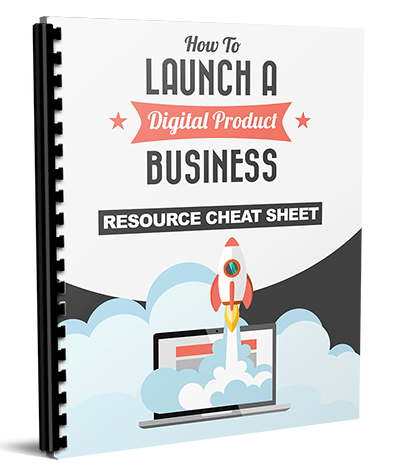
Table of Contents
How to monetize your website
How to monetize my website without AdSense or Ezoic
Are you a beginner looking to monetize your website but feeling unsure about relying solely on Google AdSense or Ezoic? You’re not alone. Many website owners are seeking alternative methods to generate income from their online presence. In this article, we’ll explore various strategies to help you answer the question, how to monetize my website without depending on these popular advertising platforms. From affiliate marketing to sponsored content and beyond, we’ll guide you through the process of diversifying your revenue streams and maximizing your website’s earning potential.
1. Affiliate Marketing: Earn Commissions by Promoting Products
Affiliate marketing is a powerful way to monetize your website by promoting other companies’ products or services. By joining affiliate programs and incorporating relevant affiliate links into your content, you can earn commissions for each sale or lead generated through your unique referral link. To succeed with affiliate marketing and effectively answer how to monetize my website:
- Choose products or services that align with your niche and target audience
- Provide genuine, helpful content that naturally incorporates affiliate links
- Build trust with your audience by only promoting products you believe in
- Monitor your affiliate performance and optimize your strategies accordingly
2. Sponsored Content: Partner with Brands for Paid Promotions
Sponsored content involves partnering with brands to create and publish content that promotes their products or services on your website. This can take the form of sponsored blog posts, product reviews, or even dedicated landing pages. To attract sponsored content opportunities and learn how to monetize my website:
- Develop a strong brand and engaged audience in your niche
- Create a media kit showcasing your website’s stats and audience demographics
- Reach out to relevant brands and pitch your sponsored content ideas
- Ensure that sponsored content is clearly disclosed and complies with legal guidelines
3. Digital Products: Create and Sell Your Own Products
Creating and selling your own digital products is another excellent way to monetize your website. This can include ebooks, courses, templates, printables, or any other downloadable resources related to your niche. To create successful digital products and discover how to monetize my website:
- Identify the needs and pain points of your target audience
- Develop high-quality, valuable products that address those needs
- Use engaging copywriting and visuals to showcase your products
- Set up a secure payment gateway and delivery system for seamless transactions
4. Monetize Your Website with In-Text Advertising

In-text advertising is an alternative monetization method that allows you to earn revenue by highlighting specific words or phrases within your content and linking them to relevant advertisements. When a user hovers over or clicks on the highlighted text, an ad or popup is displayed, generating income for your website. Some in-text advertising platforms to consider when learning how to monetize my website include:
- Infolinks: Infolinks is a popular in-text advertising network that automatically identifies and highlights relevant keywords within your content. It offers various ad formats, including in-text ads, tag clouds, and interstitial ads. Infolinks has no minimum traffic requirements and provides customization options to match your website’s design.
- Vibrant Media: Vibrant Media offers in-text advertising solutions that highlight relevant keywords and display ads when users hover over them. It provides a range of ad formats, including in-text ads, image ads, and video ads. Vibrant Media offers advanced targeting options and provides detailed reporting and analytics.
- Skimlinks: Skimlinks is an affiliate marketing and in-text advertising platform that automatically turns product mentions and links within your content into affiliate links. It partners with thousands of merchants and offers a simple setup process. Skimlinks provides real-time reporting and offers a revenue share model based on the sales generated through your links.
When implementing in-text advertising, it’s essential to maintain a balance between user experience and monetization. Ensure that the ads are relevant to your content and do not disrupt the reading flow. Be transparent with your audience about the presence of in-text ads and provide an easy way for them to opt-out if desired.
For helpful strategies to generate passive income click here.
5. Sponsored Email Campaigns: Monetize Your Email List
If you have a growing email list, sponsored email campaigns can be an effective way to monetize your website. This involves partnering with brands to promote their products or services directly to your email subscribers. To implement sponsored email campaigns and learn how to monetize my website:
- Build a targeted and engaged email list in your niche
- Develop a media kit showcasing your email list stats and audience demographics
- Reach out to relevant brands and pitch your sponsored email ideas
- Ensure that sponsored emails are clearly labelled and provide value to your subscribers
Diversifying Your Website Monetization Strategies
Monetizing your beginner website without relying on Google AdSense or Ezoic requires creativity, experimentation, and persistence. By exploring alternative monetization strategies such as affiliate marketing, sponsored content, digital products, in-text advertising, sponsored email campaigns, and crowdfunding, you can diversify your income streams and build a sustainable online business. Remember, success in website monetization takes time and effort. Focus on providing genuine value to your audience, building trust, and consistently creating high-quality content. By prioritizing your audience’s needs and experimenting with different monetization methods, you’ll be well on your way to answering how to monetize my website and achieving your financial goals while growing your website’s revenue.
By following these strategies and best practices, you’ll be well-equipped to answer the question how to monetize my website and start generating revenue from your online presence.

Frequently Asked Questions (FAQ)
1. How do I choose the right affiliate programs for my website?
Look for affiliate programs that offer products or services relevant to your niche and target audience. Consider factors such as commission rates, cookie duration, and the reputation of the merchant. Read reviews and do your research to ensure the affiliate program is reliable and trustworthy.
2. How much can I charge for sponsored content on my website?
The amount you can charge for sponsored content depends on various factors, including your website’s traffic, engagement, niche, and the scope of the sponsored campaign. Research industry benchmarks and consider your own unique value proposition when setting your rates. Be open to negotiation and be transparent with potential sponsors about your expectations.
3. How do I promote my digital products effectively?
To promote your digital products effectively, focus on creating compelling sales pages that highlight the benefits and unique value of your products. Use engaging copywriting, visuals, and social proof to persuade potential buyers. Leverage your website’s blog, email list, and social media channels to drive traffic to your product pages. Consider offering limited-time promotions or bundles to incentivize purchases.
4. How can I ensure in-text advertising doesn’t negatively impact user experience?
To ensure in-text advertising doesn’t negatively impact user experience, be selective about the keywords you choose to highlight and ensure they are relevant to your content. Use a subtle highlighting style that doesn’t disrupt the reading flow. Provide clear disclosure about the presence of in-text ads and give users the option to opt-out if desired. Regularly monitor user feedback and adjust your in-text advertising strategy accordingly.
5. How can I attract sponsors for email campaigns?
To attract sponsors for email campaigns, build a targeted and engaged email list in your niche. Create a compelling media kit that showcases your email list stats, audience demographics, and previous successful campaigns. Reach out to relevant brands and pitch your sponsored email ideas, highlighting the benefits and value you can provide to their target audience. Demonstrate your expertise and credibility in your niche to establish trust with potential sponsors.
6. LAST RESORT: What are some best practices for success on Patreon or crowdfunding platforms?
To succeed on Patreon or crowdfunding platforms, clearly communicate the value and impact of your work to potential supporters. Offer a range of contribution tiers with exclusive perks or rewards to incentivize support. Consistently deliver high-quality content and engage with your supporters through regular updates, behind-the-scenes glimpses, and community interactions. Express gratitude and appreciation for your supporters’ contributions and foster a sense of belonging within your community.


